Poppy Seed
Poppy Seeds are the seeds of the Opium Poppy plants. These small and edible seeds have a long history of being used by humans. People from various civilizations cultivated and used the Poppy Seeds for various purposes. Today, the seeds are grown throughout the world and are commonly used as a main ingredient in various cuisines. Oil is also extracted from them.
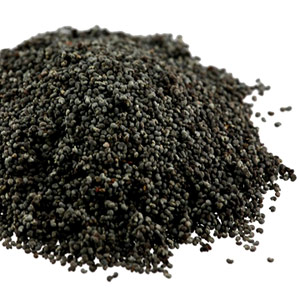
Poppy Seed
Table Of Content
Poppy Seed Scientific Name
The scientific name for the Opium Poppy plants is Papaver somniferum.
Poppy Seed History
Many ancient civilizations, like the Sumerians, were familiar with these seeds. Ebers Papyrus, an Egyptian papyrus scroll written in the 1550 BC, mentions them as an effective sedative. The Bronze Age civilization from the Crete Island called the Minoan civilization cultivated Opium Poppy for the seeds.
Poppy Seed Regional Names
They are known by various names in different Indian languages:
- Hindi name: Khuskhus
- Tamil name: Kasa Kasa
- Malayalam name: Kus Kus
- Telugu name: Gasagasa
- Kannada name: Gasagase
- Bengali name: Posto Dana
- Marathi Name: Khaskhas
The Urdu Name for the seeds is Khuskhus.
Poppy Seed Description
The seed pods or capsules of the Opium Poppy plants contain the Poppy Seeds. Here is a general description of these seeds:
Size: The tiny seeds grow around 1 mm in size.
Shape: They resemble a human kidney in shape.
Color: The Indian variety is off-white in color while the western variety is bluish-gray.
Aroma: They have a mild sweet aroma which increases when the seeds are roasted.
Flavor: These seeds have a mild nutty flavor, especially when heated.
Poppy Seed Plant Distribution
Opium Poppy plants are native to the southeastern regions of Europe and the western parts of Asia. They are widely grown all over the world. Their distribution range includes Europe, Asia as well as North and South America.
Poppy Seed Cultivation
The Opium Poppy plants are used for harvesting their seeds and straws and for producing a highly addictive drug called opium. Due to the misuses, the cultivation of these plants has been restricted. But they are legally grown in many countries. The plants are generally grown from the seeds.
They can survive in a wide range of soil types including clay, sandy loam and sandy. The Poppy Seeds require plenty of water for germination. The plants prefer slightly acidic soils. Regular watering is required for their proper growth. The Opium Poppy plants grow best in full sunlight.
The Poppy Seeds are best harvested after they are properly matured. The seed heads are left on the plants to ripen even after the flowers dry. The seeds are harvested once the capsules ripen and turn brown.
Poppy Seed Nutritional Facts
Here is the nutritional fact for 100 gm of this seed:
| Nutrients | Amount |
| Energy | 525 Kcal |
| Carbohydrates | 28.13 g |
| Protein | 17.99 g |
| Total Fat | 41.56 g |
| Cholesterol | 0 mg |
| Dietary Fiber | 19.5 g |
Vitamins
| Nutrients | Amount |
| Folates | 82 µg |
| Niacin | 0.896 mg |
| Pantothenic acid | 0.324 mg |
| Pyridoxine | 0.247 mg |
| Riboflavin | 0.100 mg |
| Thiamin | 0.854 mg |
| Vitamin A | 0 IU |
| Vitamin C | 1 mg |
| Vitamin E | 1.77 mg |
| Vitamin K | 0 mg |
Electrolytes
| Nutrients | Amount |
| Sodium | 26 mg |
| Potassium | 719 mg |
Minerals
| Nutrients | Amount |
| Calcium | 1438 mg |
| Copper | 01.627 mg |
| Iron | 9.76 mg |
| Magnesium | 347 mg |
| Manganese | 6.707 mg |
| Phosphorus | 870 mg |
| Selenium | 13.5 µg |
| Zinc | 7.9 mg |
Poppy Seed Health Benefits
Numerous health benefits can be derived from them:
- They contain many chemical compounds with anti-oxidant, health promoting and disease preventing properties.
- Around 50% of their total weight is composed of various essential fatty acids and volatile oils.
- They are an excellent source of oleic and linoleic acid.
- Their outer coats are rich in beneficial dietary fibers.
- These seeds are beneficial for the digestive system and help to relieve constipation.
- The seeds are rich in B-complex vitamins including pantothenic acid, thiamin, riboflavin, pyridoxine, folic acid and niacin.
- They also contain high levels of copper, iron, potassium, calcium, zinc, magnesium and manganese.
- Poppy Seeds are used in Ayurvedic medicine for preparing a moisturizer for skin. The seeds are soaked in water, made into paste and applied to the skin along with milk.
- The seeds are also beneficial for the human nervous system. They can cure nervous irritability.
- They are effective as pain killer.
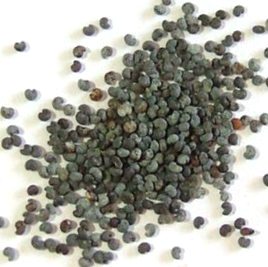 Picture 3 – Poppy Seed Picture
Picture 3 – Poppy Seed Picture
Poppy Seed Uses
They are used for various culinary purposes throughout the world.
- Blue Poppy Seeds are used in a variety of baked confectioneries, mainly in the western countries.
- They are sprinkled over different cakes, breads and buns to enhance their flavor.
- These seeds are often fried in butter and added to various dishes such as noodles and pasta.
- Poppy Seed paste is used in Eastern Slovakia and Lithuania for preparing a traditional meal for the Christmas Eve (Kūčios) dinner.
- The White Poppy Seeds are widely used in the Indian cuisine.
- Ground seeds are used along with other ingredients such as coconuts for preparing delicious Kormas.
- Poppy Seeds are popularly used for making salad dressings.
- The seeds are used as filling for various vegetables in different recipes.
- They are also used for flavoring vegetables and sauces.
- The seeds are often used for preparing seafood and fish dishes.
- In Jewish and Middle Eastern cuisines, these seeds are used in candies, cakes and for studding pretzels.
- They are also used as a topping for various desserts.
Poppy Seed Recipes
Following are the names of some recipes using these seeds:
- Lemon Poppy Seed Muffins
- Orange Poppy Seed Cookies
- Poppy Seed Bread
- Poppy Seed Dressing
- Poppy Seed Chicken Casserole
- Poppy Seed Cookies
- Poppy Seed Cake
- Polish Poppy Seed Roll
- Poppy Seed Strudel
- Poppy Seed buns
- Poppy Seed cupcakes
Poppy Seed Substitute
No other ingredient can be a perfect substitute for them. But one can use Sesame seeds as an equivalent for Poppy Seeds if the later is unavailable.
How to Store Poppy Seed?
It is important to store them properly otherwise the oil contents of the seeds become rancid, making the seeds taste slightly bitter. One should store them in tightly sealed containers in a cool and dry place away from direct sunlight. Freezing them is not recommended.
Poppy Seed Tea
An infusion brewed from the Poppy Seeds and straws is known as Poppy tea. The tea has analgesic, narcotic and anti-diarrheal properties. Poppy Seed tea can be prepared easily following a simple recipe. The morphine contents of the Poppy Tea can cause many adverse effects on human health and even cause the death of an individual if taken in very high doses.
Poppy Seed Oil
Oil is extracted from these seeds using the cold pressed method. This edible and highly nutritious oil is used for numerous culinary as well as pharmaceutical purposes. The Poppy oil is used for making varnishes, paints and soaps as well.
Using Poppy Seeds during Pregnancy
Consuming small amounts of these seeds in cakes and muffins does not generally cause any harm to the baby. But the unborn child may become addicted to opium and morphine if the mother eats high amounts of the seeds during pregnancy.
Poppy Seed Side Effects
They do not cause any serious side effects when consumed in moderate amounts. But eating high amounts of the seeds can cause serious health hazards. The highly addictive seeds can demonstrate the symptoms of allergies, sedation, lethargy, and abdominal contractions. Their high morphine contents can even cause death.
Poppy Seed Price and Availability
The bluish grey variety is generally available in the United States. The white variety is mainly found in Asia. The price for 16 ounce of the blue seeds ranges from $5 to $8 while 7 ounce of the white variety costs between $8 and $10.
Poppy Seed Interesting Facts
Find out some interesting facts about the seeds of Opium Poppy plant:
- Each Poppy Seed pod contains over 1000 seeds.
- They are believed to have supernatural powers and are used in charms and amulets to confer luck and money.
- Some people believe these seeds to be able to bestow magical invisibility powers.
Poppy Seed Pictures
Here are some images of the Poppy Seeds and their plants.
 Picture 6 – Poppy Seed Muffins
Picture 6 – Poppy Seed Muffins
References:
http://en.wikipedia.org/wiki/Poppy_seed
https://theepicentre.com/spice/poppy-seed/
http://www.nutrition-and-you.com/poppy-seeds.html
http://www.indianspices.com/indianspices/spice-catalog/poppy-seed.html
- by Deepamala Bhattacharya
- March 26th 2012

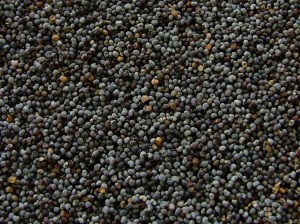
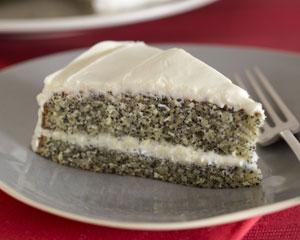
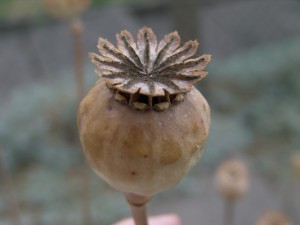
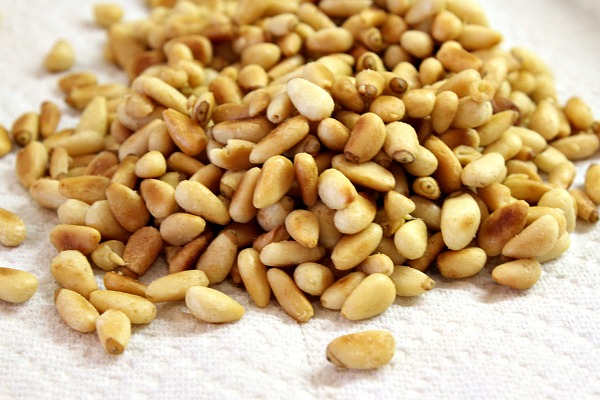

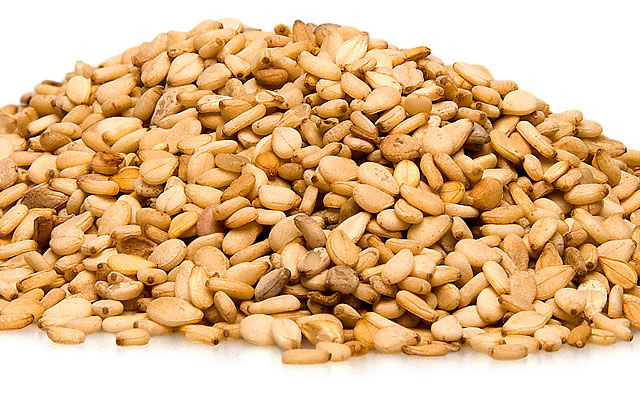
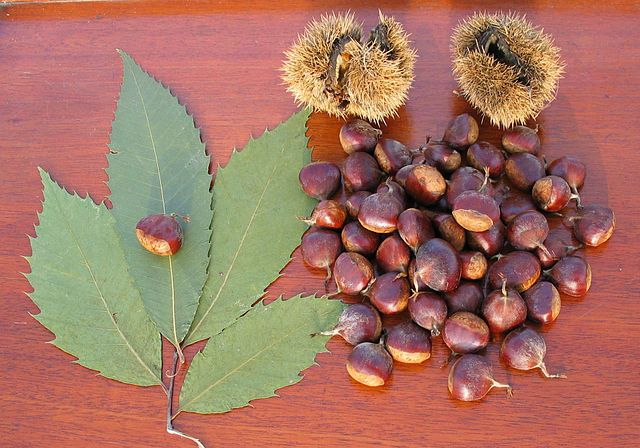
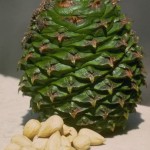
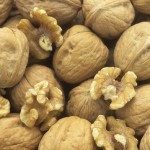
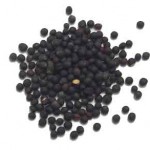
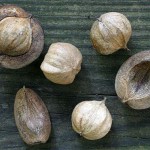
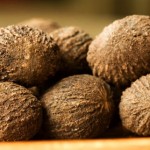
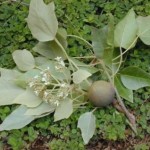
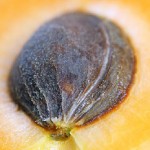
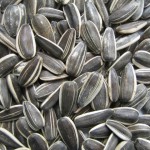
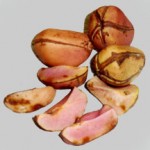
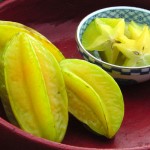
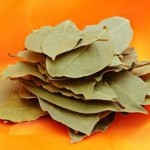
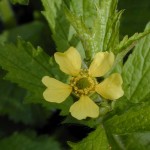
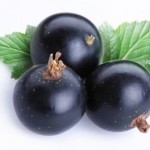
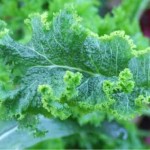
Leave a Reply